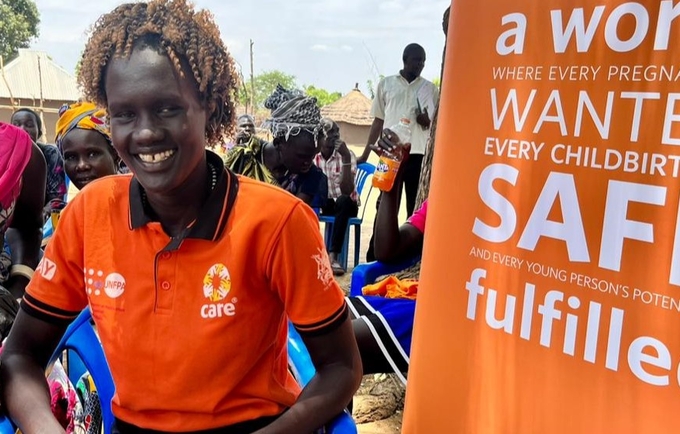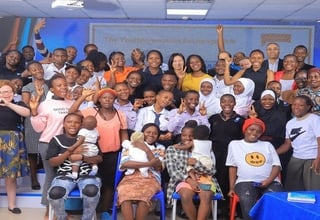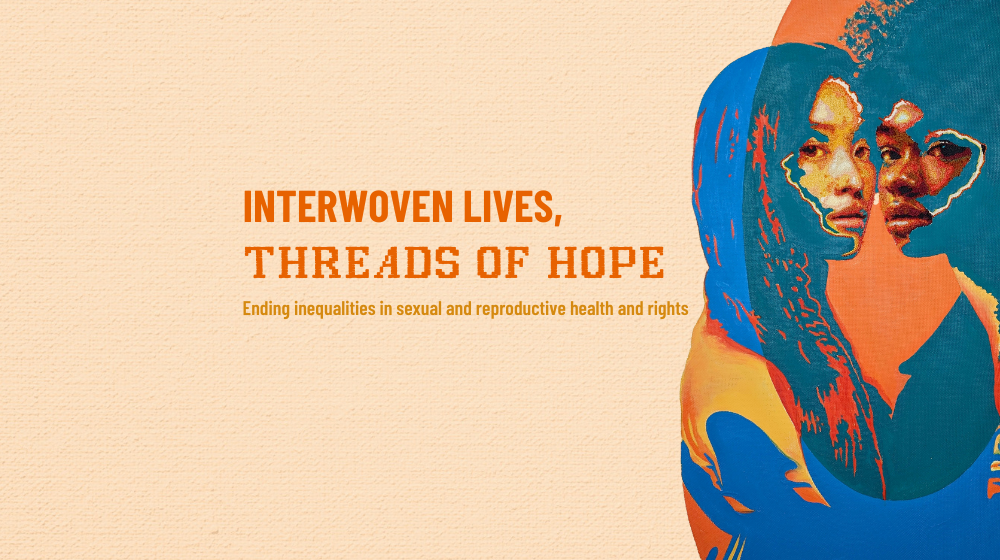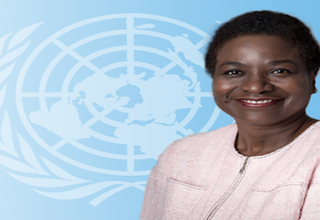We arrived here in this country in 2018, and I joined this women's space. Progressively, I have learnt to be confident and trust in my ability. I feel more empowered and can stand and talk before men- something that was taboo back at home and was seen as very unusual.
The bright rays of the sun cast a promising light on the women and girls who have gathered to celebrate their new and old home. It is a place where they can finally feel free and rebuild their lives. The safe space is as much a physical as it is a mental space.
In the depths of Nyumanzi Refugee Settlement, Adjumani district in Uganda, the United Nations Population Fund, under the Women, Adolescents, Youth Rights and Empowerment programme (WAY), through Care International, established safe spaces where refugee women and girls can have a chance to rebuild their lives and dream again.
And today, a modest delegation has arrived from Denmark and the Royal Danish Embassy. They have come to experience for themselves the difference that the spaces are making for the women and girls, most of whom are refugees from South Sudan. The delegation from the Danish embassy is not only here to witness for themselves the impact of the WAY programme, but also to honor the refugee women and girls whose lives they have touched. Though they may live miles away from each other, in a way, their destinies have crossed, their lives forever linked.
At a young age, Khot Elizabeth fled the war in South Sudan with her family members, and like many of the women here, they took refuge in Nyumanzi. For five years, Elizabeth has come to this space, a haven within the refugee settlement. This place has significantly changed her life and that of hundreds of refugee women and girls. It has allowed her to process her trauma and bounce back into the woman she was destined to become-a woman beyond her struggles, a woman with hope and the promise of new dawn. She reminisces,
"We arrived here in this country in 2018, and I joined this women's space. Progressively, I have learnt to be confident and trust in my ability. I feel more empowered and can stand and talk before men- something that was taboo back at home and was seen as very unusual. I am now able to challenge and vie for leadership roles in the community. I want to continue to use the knowledge, experience and skills acquired to positively amplify the voices of women and girls for equality and productive life.”
Elizabeth joined this space as a young girl. In this safe gathering point, Elizabeth like many of her peers, had an opportunity to rebuild herself, her social assets and community networks. Here she accessed information on how to protect herself from early pregnancy, stand up for herself and assert herself in the world. She got business skills in village savings and loans association (VSLA), soap making, making tablecloths and fabric designs, to mention a few.
The women and girls who attend the safe spaces may be of different ages, and each on individual journeys, but they have one thing in common, strength and zeal for life! The safe spaces have brought them together and they are thriving. They can claim their place in the world and for most, it is a revelation. They have been given something special, the renewed belief in their power as women and girls, not victims. Their destinies are linked for the better.
The WAY programme covers twenty-three (23) refugee settlements across the West Nile and Acholi sub-region in the districts of Madi Okollo/Terego, Adjumani, Yumbe, Obongi and Lamwo districts. In these settlements, there are forty-six (46) safe spaces for women and youth, and twenty-two (22) refugee volunteers equipped to support the refugees.
In 2023, the WAY programme under the leadership of UNFPA and in partnership with CARE International, supported more than 3,641 refugee women and girls across the 46 safe spaces. More than 1,840 refugee women and girls were trained in various trade skills such as tailoring, beading, and weaving to upscale the profitability of their businesses to further reduce their risks of GBV and enhance their overall empowerment. Over the years, the women’s safe spaces have reduced the risks of GBV and, importantly, provided women and girls with a safe entry point for services and a place to access information.
UNFPA continues to advocate for the inclusion of those left behind, most of whom are refugees. The women and girls face the added burdens and challenges related to negative gender norms that make them vulnerable to domestic violence, early pregnancy and even death.
UNFPA is very grateful to the Embassy of Denmark for making it possible to reach women and girls like Elizabeth. In this period of 16 Days of activism against gender-based violence, we salute you.
Quick facts: Nyumanzi Refugee Settlement hosts 216,138 other refugees, part of the 1.5 Million refugees currently hosted in Uganda.




